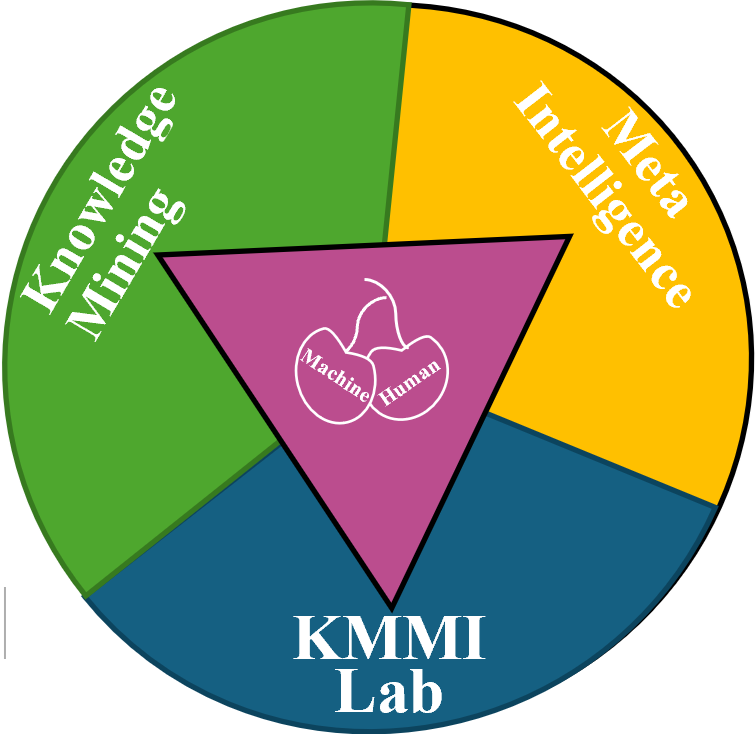

The Knowledge Mining and Meta Intelligence (KMMI) Lab aims to develop intelligent algorithms that can bridge the knowledge gap between humans and machines through building automated capabilities and bringing together the physical and virtual worlds. The mainstream research of the lab focuses on two themes:
Knowledge Mining: i.e., knowledge extraction from vast amounts of big data to deeply understand data content, uncover hidden insights, and find relationships and patterns at scale. Typical big data include human-generated data (eg, text and video) and machine-generated data (e.g., sensor data and system log data).
Meta Intelligence: i.e., intelligence about how to design and measure the intelligence of human-produced work (eg, publications, patents, proposals) or machine learning algorithms (e.g., automation, robotics). Typical meta-intelligence applications include innovation management (e.g., innovative publication/proposal discovery) and robotic intelligence measurement (eg, emotional intelligence measure).
The representative research areas in the lab include
Natural Language Processing/Understanding/Generation, to discover knowledge from big corpora and realize natural machine-human dialogue. Specific research areas may include topic modeling and discovery, automatic question answering/generation, fake news event analysis, emotion and sentiment analysis, text summarization, and automated information extraction.
Intelligent Surveillance by Video, to provide a virtual representation of physical objects for surveillance scenario modeling. Topics may include moving object behavior modeling from video data, smart home care, and bridge traffic monitoring.
Emerging Pattern Mining, to predict future trends in specific domains, such as social media, traffic, and technology management. Areas of research may include emerging topic discovery, emerging event detection, and innovative technology trend prediction.
Rare Data Mining, to find and analyze rare but critical data from big data. Abnormal temporal pattern analysis, abnormal behavior mining, and rare event detection are among the major research topics in this theme.
Human-Centred Decision Making, to transfer human intelligence into machine algorithms for decision making. Some main research areas will focus on general AI, affective/emotional intelligence, attitudinal intelligence, motivational intelligence, and implicit knowledge awareness (contextual, interactive, causal, etc.).
